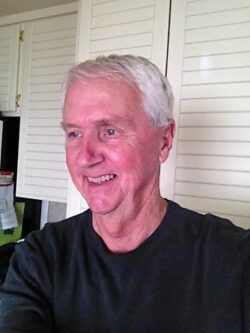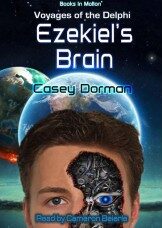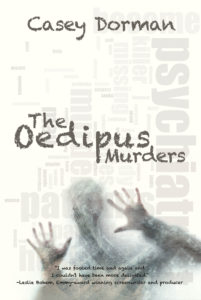I write both fiction and nonfiction and have published books in both genres. My next novel will be my fifteenth. I’ve also published a host of academic papers, presented papers at numerous scientific conferences, as well as written blogs on scientific and philosophical topics. When I’ve been interviewed and asked how I got into writing novels, I usually give the semi-humorous answer that, after writing Cognitive Effects of Early Brain Injury, 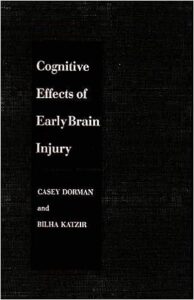 a volume in the John Hopkins Series on Neuroscience and Psychiatry, which had several hundred references and took me six years to write, I decided that in any books I wrote in the future, I’d just make everything up.
a volume in the John Hopkins Series on Neuroscience and Psychiatry, which had several hundred references and took me six years to write, I decided that in any books I wrote in the future, I’d just make everything up.
I enjoy research, particularly the designing of projects, the unearthing of previous relevant studies and theories, and that moment of revelation when the results become evident. I like organizing the study into a communicable paper, being concise, clear, and sticking to the data. I like it so much that, at an advanced age, I’m still consulting as a research design, analysis, and scientific writing expert on projects that I consider socially worthwhile. But I can’t escape the feeling of being constrained—by the narrow formats allowed in academic writing, by the need to be absolutely thorough in reporting literature that has examined the same issue in the past (scientists put lawyers to shame in terms of citing precedents for their studies), and finally, by the data itself. You can only report what you found, not what you hoped you’d find. Then there’s peer review. Every flaw in your literature review, your study design, your analysis of data, and your conclusions is subject to scrutiny by your peers. They’re usually honest, but they can be ruthless.
I’m a private person. My mind goes places that entertain me but that I wouldn’t want peer reviewed. Constraints to my thinking bother me. When I write fiction, I can write the way I want and follow the meanderings of my mind. I can imagine myself as Hemingway on the Avenue St. Germaine des Pres, in Paris, or Proust, coming home from an exhausting salon exchange to crawl into his bed and re-imagine the evening with his characters present.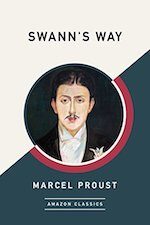 I know the feeling of Kafka, sitting in his room, feeling hemmed in by the primitive, but powerful demands and prejudices of society, and imagining the grotesque creature he might turn into if he gave into them.
I know the feeling of Kafka, sitting in his room, feeling hemmed in by the primitive, but powerful demands and prejudices of society, and imagining the grotesque creature he might turn into if he gave into them.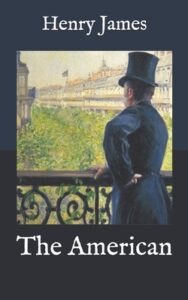 Henry James, Hemingway, Proust, Kafka, Camus, Thomas Wolfe, Richard Wright, Raymond Chandler; these people are my heroes, and if I can create just the right atmosphere (a coffee house in the morning, a bar in mid-afternoon, my kitchen table at 1:00 am), I feel as if I’m not alone when I try to translate my embryonic intuitions into story form.
Henry James, Hemingway, Proust, Kafka, Camus, Thomas Wolfe, Richard Wright, Raymond Chandler; these people are my heroes, and if I can create just the right atmosphere (a coffee house in the morning, a bar in mid-afternoon, my kitchen table at 1:00 am), I feel as if I’m not alone when I try to translate my embryonic intuitions into story form.
Writing fiction can generate an experience of aloneness that I savor. I am the sole judge of the adequacy of my endeavors. If it sounds right to me, then that’s what I intended to write. I don’t write for myself. I keep my reader always in mind. I write for people like me, who enjoy the same writers I enjoy, the same kinds of stories that move me, the same skillful play with words. When I write in a way that I know I would enjoy reading, then I’m satisfied. It’s a solitary process, but one that includes a large, imagined audience, an audience I know well, since I’ve been one of them for years. When I get it right, and I have to admit that I’ve gotten it right only sporadically and never for the length of a full novel, I know it. If reviewers and critics don’t like it, so be it. My only worry is that my work might not ever arrive in the hands of the reader I intended it for and who, I am sure, would value it. But the process is freeing. I am my own judge and critic. My criteria are hallowed in my own mind; my writer-heroes are saints, even if they were scoundrels in their lived lives. If I can write a novel that expresses my thoughts in the beautiful cadence, the perfect word choice, the thoughtful insights that would delight me if I read them, I will be happy.
And I choose fiction, because, in writing fiction, it seems more like it’s up to me, alone, to do it right, and no one else’s criteria can determine my success.
Want to read some of my fiction? Read my exciting sci-fi thriller, Ezekiel’s Brain.
Available in paperback and Kindle editions
Rather listen than read? Download the audio version of Ezekiel’s Brain from Audible.
Prefer mysteries instead of sci-fi? Try my psychological thriller, The Oedipus Murders
The Oedipus Murders is also available as an Audio book.
Subscribe to Casey Dorman’s Newsletter. Click HERE
